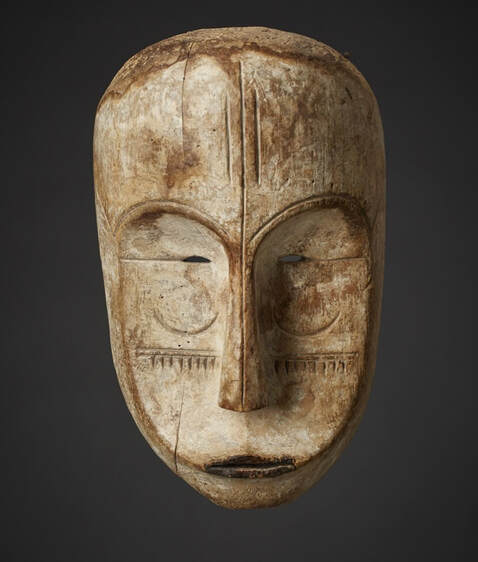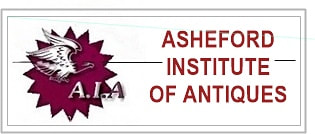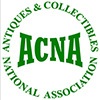|
If Lawyers & Courts Have Their Way, The Answer Could Be Yes  Does A Seller Have 'Rights' After The Sale? (Ngil Fang Mask) Does A Seller Have 'Rights' After The Sale? (Ngil Fang Mask) New York - In a captivating legal case currently being adjudicated in the French justice system, questions are being asked about whether individuals who've sold antiques or artworks later determined to have a significantly higher value can seek additional compensation over and above the original sale amount. The case revolves around an unnamed eighty-one year old woman and her eighty-eight year old husband, who stumbled upon an African mask while clearing out their vacation home. As the couple sorted through their belongings, most of which were destined for a garage sale, they decided to put aside an African mask and sold it to a local antiques dealer for a seemingly modest sum of €150, equivalent to approximately $157, in September 2021. However, several months later, while perusing their local newspaper, the couple was taken aback by the revelation that their once-unassuming mask had just fetched a staggering €4.2 million (approximately $4.4 million) at an auction in Montpellier for African art. From the auction records it was revealed that the mask was in fact an especially rare example of a Fang mask used in certain secret African rituals, and came with a fascinating history, having been brought back from Gabon by the husband's grandfather, a colonial governor in Africa at the beginning of the twentieth-century. With a growing sense of injustice, the elderly couple decided to take legal action against the antiques dealer who had purchased the mask from them. The core of their argument centered on the suspicion that the dealer had a much better understanding of the mask's true worth when he acquired it. The antiques dealer, for his part, did not put the mask on display in his shop. Instead, he sought appraisals from two auction houses, Drouot Estimation and Fauve Paris, which estimated the mask's value to be around €100–€120 and €400–€600, respectively. However, the dealer's decision to seek a third opinion from a specialized auction of African objects in Montpellier was a game-changer. After subjecting the mask to carbon-14 dating and mass spectrometry analysis, it was dated to the 19th century. An ethnologist's expert appraisal revealed its use in purification rites by the Ngil society, a secretive group within the Fang ethnic community in Gabon until the 1920s. The auction house subsequently placed the mask for sale with an estimated value of between €300,000 and €400,000, ultimately selling it for a remarkable €4.2 million. The couple's legal team believes that the sale should be canceled due to their honest misunderstanding of the mask's true value. The case draws parallels with other instances where owners of artworks have sought restitution after misattributions were corrected, as seen with paintings by Nicolas Poussin that were initially attributed to lesser-known artists. The legal battle has already gone through several stages, with the antiques dealer initially offering a settlement of €300,000 (approximately $315,000) to the couple, which they rejected due to their children's opposition, as revealed in court documents. The couple proceeded to file their case in a judicial court in Alès, seeking an injunction to seize the sale proceeds along with damages. A protective seizure was authorized by the Alès court and implemented by a bank in southwestern France. However, the lower court later ruled in favor of the antiques dealer, returning the funds to him and ordering the couple to pay him damages and other fees totaling €3,000 (about $3,148). Unyielding, the couple appealed the judgment to the higher court in Nimes in November. The ongoing legal dispute underscores the complexities of decorative art transactions, the responsibilities of buyers and sellers, as well as the evolving nature of valuing cultural artifacts. As the case continues to move forward, the appeals court in France has once again ordered the seizure of the sale proceeds, totaling €3.1 million, until a final judgment can be reached. David Rabinovitch, a New York based lawyer whose firm specializes in high-end contractual sale agreements related to the decorative arts, believes that the case now unfolding in France could have a far reaching impact not only in Europe but in the U.S. and Canada as well. "It's obviously not precedent setting for us," says Rabinovitch, "but there's no doubt that judges will at least look to examples like these for input and direction when it comes to their own cases." Rabinovitch thinks the outcome of this case could also have a broader effect on the responsibilities and obligations of antique dealers and art market participants from around the world, further highlighting the fine line between someone scoring a deal, and someone ending up in a lawsuit. "We read about these great largesse finds happening all the time," Rabinovitch says, "but what about the more pedestrian examples of someone selling a houseful of Mid-century modern furniture for twenty-bucks... are they now entitled to a share of the dealer's profits as well?" Rabinovitch thinks that we'll end up having to draw the line somewhere, but that it will likely come as a series of court judgments first before anything else truly gets resolved. "It's just a matter of time,' he says, "all industries eventually get regulated to some degree." - A.I.A. Staff Writers  NOTE: For readers seeking more information about the Asheford Institute Of Antiques distance-learning program on professional-level appraising, the study of antiques, collectibles, vintage and mid-century modern, please click here to visit the school's Home Page. Should you have additional questions about the Asheford program, you can also write to the school at: info@asheford.com or call the Registrar's Office toll-free at: 1-877-444-4508. Comments are closed.
|
AIA StaffWe're providing our students and reader's with the latest breaking news on events and happenings that we think might be of interest to both collectors and dealers alike. Including changes within the world of antiques, vintage, collectibles and appraising that might just have an effect on your bottom line. We're also interested in hearing from you - so if you've got a great newsworthy story, let us know, and you just might find it here! Archives
July 2024
CategoriesLegal Disclaimer: Extraneous opinions, statements and comments made by individuals represented within these posts do not necessarily reflect those of the Institute. The publication naming of specific business entities, organizations, and concerns, contained herein, in no way represents an endorsement or recommendation of services or products by the Institute. Publicly identifiable information contained herein (including, but not limited to contact information), has been intentionally limited where possible, due to privacy and legal concerns related to the digital dissemination of information through online means. All views expressed herein are those of their respective owners. The Institute is in no way responsible, financially or otherwise, for the accuracy or validity of statements contained within published posts from sources that originate and appear outside of the written and expressed views of those submitted by the Institute.
|



 RSS Feed
RSS Feed




